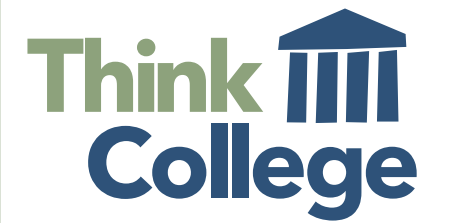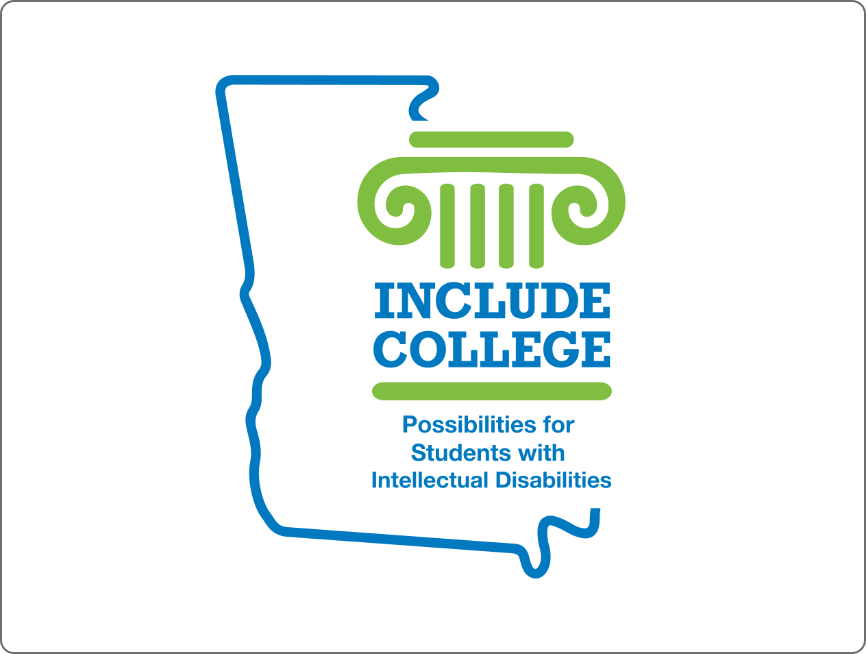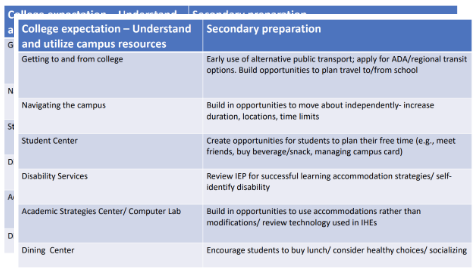
Download the checklist: Tips for IEP Teams to Help Students and Families Prepare for Inclusive Post Secondary Education.
What You Need to Know
As the parent or family member of a young adult with intellectual disabilities, preparing for your child’s success after high school is important. And that can Include College.
The information below addresses some of the most important topics that parents consider when it comes to selecting an inclusive post secondary education options for their student(s) with intellectual disabilities.

Costs and resources to pay for college programs for students with intellectual disabilities vary from college to college. Currently, most schools require private pay or personal loans. Some schools in Georgia offer scholarships or are qualified for PELL Grants. The IPSE programs at Georgia public universities and college now are eligible for IPSE Grants.
Many Georgia inclusive post secondary programs have on-campus housing and students are required to follow university rules and standards.
Employment and career skills are goals for any college student. Through the inclusive post-secondary programs, students with intellectual disabilities receive opportunities for internships or paid employment or work-study as a part of their college career.
Graduating from college is a milestone for any student. Students graduating from IPSE usually receive a certificate, respective to the university or college they attend.
Most inclusive post secondary programs in Georgia offer peer mentoring and vast opportunities for extracurricular activities in inclusive settings to have a true college experience. With the support of peer mentors, students can identify extracurricular activities he or she is interested in pursuing; determine how to balance social and academic life; and foster lasting friendships.
IPSEs require students to have been served with an Individualized Education Plan under the IDEA in high school AND have a documented ID. While not required, programs may encourage students to be on a Vocational Rehabilitation caseload so the program can take advantage of the fee-for-service model for providing Pre-Employment Transition Services.
Please note: In some cases, autism may not qualify as an intellectual disability.

Download this chart for steps you can take now to prepare your student for college life.

Download the checklist: Tips for IEP Teams to Help Students and Families Prepare for Inclusive Post Secondary Education.